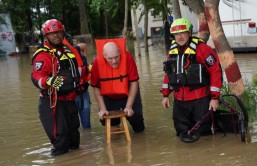On Nov. 12 researchers will land a probe on a comet for the first time in history.
The European Southern Observatory's Rosetta Mission will land the Philae probe at 09:03 GMT (10:03 CET), and touchdown is scheduled to follow around seven hours later, at 16:02 GMT (17:02 CET).
Events leading up to the history-making event started on Oct. 28 when the Rosetta spacecraft began making a series of maneuvers to put it on the correct trajectory for lander separation. The space craft's progress can be tracked here.
Rosetta is reported to be currently on track and is expected to achieve the correct delivery trajectory which will allow it to successfully deliver the lander to the surface of the comet dubbed 67P/Churyumov-Gerasimenko. The findings of the study could help us solve some of the mysteries of the origins of water and life in our universe. Comets are made of materials left over from the universe's earliest days, and scientists have been dreaming of taking a closer look for decades.
"With the arrival of Rosetta at 67P/Churyumov-Gerasimenko - an astonishing, audacious technical achievement, literally the stuff of science fiction - we are on the brink of a bold new chapter in our understanding of our place in the Universe," the ESA stated.
The mission required decades of planning, and aims to gain insight into the mysterious icy object.
"Comets are time capsules containing primitive material left over from the epoch when the Sun and its planets formed. By studying the gas, dust and structure of the nucleus and organic materials associated with the comet, via both remote and in situ observations, the Rosetta mission should become the key to unlocking the history and evolution of our Solar System, as well as answering questions regarding the origin of Earth's water and perhaps even life," the ESA stated.
WATCH:








